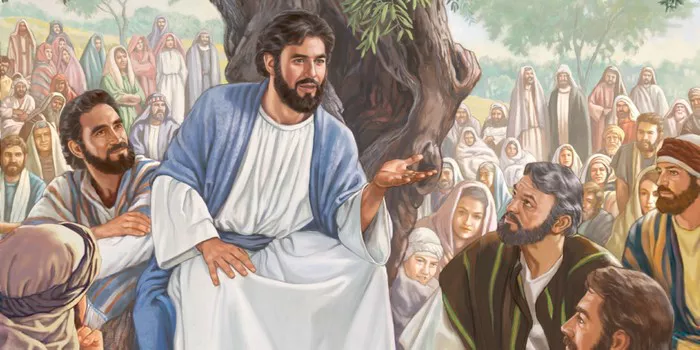The story of the plagues of Egypt, as recounted in the Book of Exodus, is one of the most dramatic and pivotal narratives in the Hebrew Bible. These plagues were a series of divine interventions that God, through Moses and Aaron, inflicted upon Egypt to compel Pharaoh to release the Israelites from slavery. The account of the plagues raises many questions, one of the most intriguing being: how long did these plagues last? This article will delve into the biblical text, historical context, and scholarly interpretations to provide a comprehensive understanding of the duration of the plagues of Egypt.
The Biblical Account of the Plagues
The narrative of the plagues is found in Exodus chapters 7 through 12. There are ten plagues in total:
- Water Turned to Blood (Exodus 7:14-24)
- Frogs (Exodus 8:1-15)
- Gnats or Lice (Exodus 8:16-19)
- Flies (Exodus 8:20-32)
- Livestock Pestilence (Exodus 9:1-7)
- Boils (Exodus 9:8-12)
- Hail (Exodus 9:13-35)
- Locusts (Exodus 10:1-20)
- Darkness (Exodus 10:21-29)
- Death of the Firstborn (Exodus 11:1-12:36)
Each of these plagues was intended to demonstrate God’s power and to persuade Pharaoh to let the Israelites go. The Bible provides varying levels of detail about the duration of each plague, with some plagues described as lasting for specific periods and others with no explicit duration mentioned.
See Also: The Lessons of the Ten Plagues
Estimating the Duration of the Plagues
Specific Durations Mentioned in the Bible
- Water Turned to Blood: The first plague is explicitly mentioned to last seven days (Exodus 7:25).
- Frogs: The duration of the second plague is not specified. However, it ended when Pharaoh pleaded with Moses and Moses prayed to the Lord to remove the frogs (Exodus 8:8-13).
- Gnats or Lice: The duration is not specified (Exodus 8:16-19).
- Flies: No specific duration is mentioned (Exodus 8:20-32).
- Livestock Pestilence: No specific duration is given, but it suggests a quick effect since all livestock in the field died in one day (Exodus 9:6).
- Boils: No duration is specified (Exodus 9:8-12).
- Hail: The seventh plague seems to be a more prolonged event, involving a warning period and the actual falling of the hail. However, the exact duration is not specified (Exodus 9:18-34).
- Locusts: No specific duration is mentioned, but the locusts covered the land until Pharaoh again pleaded with Moses (Exodus 10:13-19).
- Darkness: This plague lasted for three days (Exodus 10:22-23).
- Death of the Firstborn: This final plague struck at midnight on a single night (Exodus 12:29).
From these descriptions, we can ascertain that the first and ninth plagues had specific durations of seven days and three days, respectively. The other plagues’ durations are not explicitly stated, leaving scholars to infer or estimate based on contextual clues and the sequence of events.
Scholarly Estimates
Scholars have proposed various estimates for the overall duration of the plagues, ranging from a few weeks to several months. Key factors in these estimates include:
Intervals Between Plagues: The Bible mentions several instances where Pharaoh summoned Moses and Aaron to negotiate, which suggests intervals between the plagues. These intervals could range from a few days to several weeks.
Agricultural Cycles: The plagues affected various aspects of Egypt’s agriculture and environment, suggesting a progression through different seasons. For example, the hail plague destroyed crops that were in the field, followed by locusts that consumed any remaining vegetation, indicating a progression through the growing season.
Narrative Flow: The narrative flow of the Exodus account implies that the plagues occurred over a significant period, allowing time for each event to unfold, for Pharaoh to respond, and for Moses to pray for relief.
Given these considerations, a common scholarly estimate is that the plagues lasted several months, possibly up to a year.
Historical and Cultural Context
Understanding the duration of the plagues also involves considering the historical and cultural context of ancient Egypt. The plagues were not just random acts of divine wrath; they were targeted attacks on the Egyptian deities and their domains. Each plague undermined the authority of specific gods and demonstrated the supremacy of the God of Israel.
For example:
- The Nile turning to blood challenged the god Hapi, the Nile’s divine guardian.
- The frog plague mocked Heqet, the frog-goddess of fertility.
- The darkness plague confronted Ra, the sun god and one of Egypt’s most important deities.
The sequence and impact of these plagues would have required time to resonate with the Egyptian populace and leadership, further supporting the idea of a prolonged duration.
Theological Implications
The duration of the plagues is not merely a historical or chronological question but also a theological one. The extended period of suffering and the repeated hardening of Pharaoh’s heart serve to highlight several key themes in the Exodus narrative:
- God’s Sovereignty: The plagues demonstrate God’s control over nature and history, affirming His sovereignty over all creation.
- Judgment and Mercy: The plagues are acts of judgment against Egypt’s oppression of the Israelites, but they also offer opportunities for repentance and recognition of God’s power.
- Covenant Faithfulness: The plagues fulfill God’s promises to Abraham, Isaac, and Jacob to deliver their descendants from bondage.
Conclusion
While the exact duration of the plagues of Egypt is not definitively stated in the biblical text, a careful analysis of the scriptural narrative, historical context, and scholarly interpretations suggests that the plagues unfolded over several months, possibly up to a year. This extended period allowed for the full impact of each plague to be felt, for Pharaoh’s heart to be tested repeatedly, and for the theological messages of judgment, sovereignty, and covenant faithfulness to be clearly conveyed. The story of the plagues remains a powerful testament to the God of Israel’s might and His commitment to His people, resonating through the ages as a foundational event in the history of salvation.

